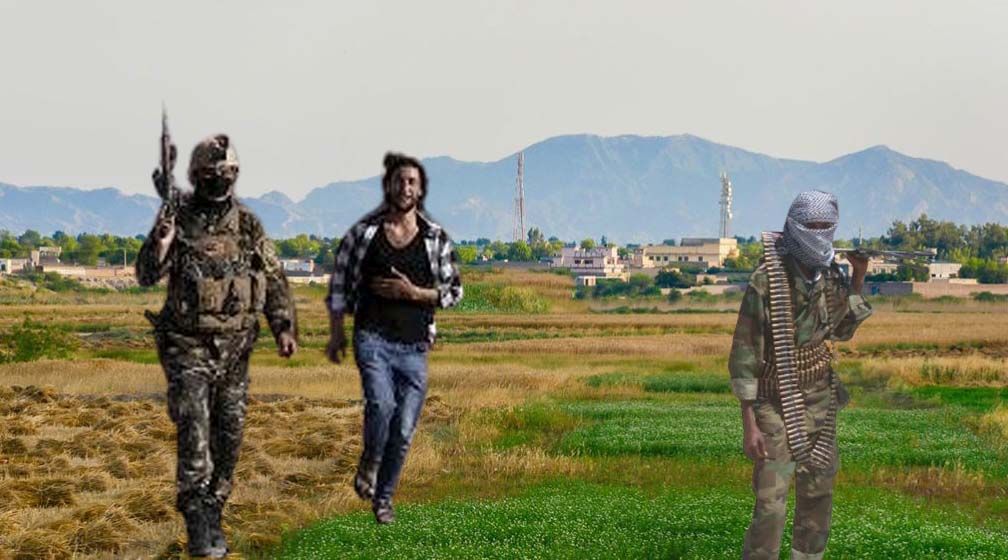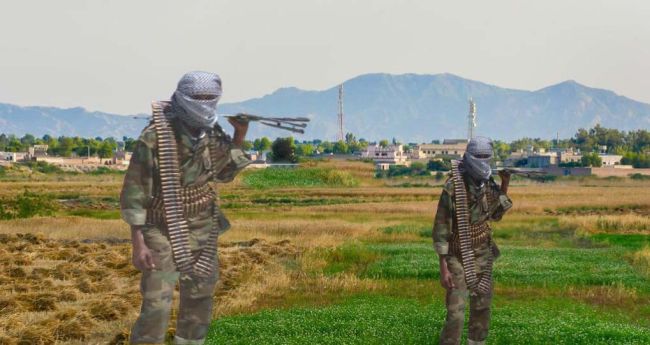Global Terrorism Index 2024: Pakistan Among the Most Affected Nations
In March 2025, the Institute for Economics and Peace (IEP) released its Global Terrorism Index 2024, highlighting the countries most impacted by terrorism.
According to the report, Burkina Faso ranked as the hardest-hit nation, while Pakistan followed closely in the second spot, underscoring the severe challenges both nations face in combating extremism.
The Roots of Terrorism in Pakistan
When people discuss modern terrorism, the conversation often begins with the tragic 9/11 attacks.
However, Pakistan’s encounter with terrorism dates back to the 1970s, when General Zia-ul-Haq mobilized thousands of Pakistanis under the banner of “jihad.” This was during the Cold War, as
Unlike American soldiers,
the fighters in this covert war were largely young men recruited from Pakistan and other Muslim countries. The conflict was heavily funded by Washington, but it was Pakistan that became the breeding ground for militants.
Even today, the exact number of Pakistani casualties from that war remains unknown, with many having lost their lives in what was portrayed as a sacred struggle.
Sectarian Violence and Regional Spillover
The withdrawal of Soviet forces in 1989 marked the collapse of the USSR, but it also opened a new chapter of violence in Pakistan: sectarian terrorism.
With Afghanistan to the west and Iran to the east—two states with sharply different sectarian identities—Pakistan became a natural battleground for sectarian clashes.
By the early 1990s,
sectarian groups such as the now-banned Sipah-e-Sahaba Pakistan (SSP) and Sipah-e-Muhammad (SM) were gaining strength.
Their violent confrontations led to countless deaths, yet there was no structured government policy to support victims or their families during that period.
Rise of the Taliban and Regional Extremism
By 1994, Afghanistan witnessed the emergence of the Taliban regime under Mullah Omar, while Iran had already been under clerical rule since 1979.
The ideological divide between neighboring countries spilled into Pakistan, fueling extremism within its borders.
Pakistan After 9/11
When General Pervez Musharraf assumed power in 1999, Pakistan’s ties with militant groups—rooted in the anti-Soviet jihad—were still strong. However, the September 11, 2001 attacks dramatically reshaped global narratives.
The United States officially branded jihadist movements as terrorism, and Pakistan, once a key ally in training and supporting such groups, had to align itself with Washington’s War on Terror.
This shift not only altered Pakistan’s foreign policy but also deeply impacted its internal security, making it one of the countries most consistently affected by terrorism over the last four decades.
Pakistan’s Role in the Global War on Terror: From Victim to Suspect
As global dynamics shifted in the early 2000s, Pakistan recalibrated its policies and aligned itself with the United States in what became known as the “second war on terror.” This decision drastically changed the country’s internal landscape.
Extremist groups deeply rooted in Pakistan’s system retaliated with unprecedented violence, triggering years of terror attacks, bloodshed, and instability.
During this period,
Pakistan consistently ranked among the most terrorism-affected nations worldwide. Thousands of citizens lost their lives or were severely injured.
While the government occasionally offered financial compensation, most families received little to no support.
Over time, however, these ad-hoc announcements evolved into a more structured assistance program, commonly referred to as the “martyrs’ package.”
The Army Public School Tragedy of 2014
One of the darkest chapters in Pakistan’s fight against terrorism occurred in December 2014, when militants stormed Peshawar’s Army Public School, killing 150 people, including 134 children.
The massacre horrified not only Pakistan but also the entire world, marking a turning point in the nation’s counterterrorism resolve.
Although was a global phenomenon—affecting cities such as New York, Madrid, Paris, Baghdad, Kabul, Nairobi, and beyond—Pakistan remained one of the hardest-hit countries.
Despite being a victim of countless attacks, the world often regarded Pakistan with suspicion rather than sympathy.
The Osama bin Laden Factor and Global Suspicion
International doubts intensified in 2011, when American forces discovered and killed Al Qaeda leader Osama bin Laden in Abbottabad, Pakistan.
For many global observers,
this raised questions about Islamabad’s credibility, fueling accusations of a “double game” in the fight against extremism.
Meanwhile, U.S. and NATO forces stationed in Afghanistan were struggling against relentless Taliban insurgencies, and Pakistan was frequently blamed for allegedly providing safe havens to militants.
This created a double narrative: while Pakistan suffered as a frontline victim of , it was also portrayed by critics as a facilitator of extremism
Global Recognition of Terrorism Victims
Despite devastating attacks across multiple continents, the world only formally recognized the need to honor terrorism victims in 2017—nearly 16 years after 9/11 and three years after the Army Public School tragedy.
By then, had already claimed tens of thousands of lives globally, with Pakistan among the most severely impacted nations.
The central objective was to establish comprehensive counterterrorism strategies built on three key pillars: security, prevention, and diplomacy.
At the same time,
the day serves as a reminder to honor the often-overlooked victims of terrorism—the injured, the widows, the orphans, the traumatized, and those who are too often forgotten in mainstream narratives.
Pakistan’s Counterterrorism Policies: Gaps Between Security and Human Rights
Since the UN resolution of 2017 that called for recognition and support of victims, Pakistan introduced a dedicated compensation fund.
However, its distribution has remained unequal and discriminatory, creating divisions between ordinary civilians, government employees, and security personnel in terms of payments and privileges.
Although special anti- courts have long existed, their painfully slow judicial process has shown little improvement.
More importantly, areas like medical care, psychological counseling, and social rehabilitation for victims have never been prioritized.
Instead, policy decisions on are usually made behind closed doors by members of the establishment, with parliament reduced to a rubber stamp.
Forgotten Victims of Terrorism
Having reported on nearly every major milestone in Pakistan’s war on —from 9/11 and the rise of militancy to the Doha talks with the Taliban and their return to Kabul.
She had sent her only son to buy vegetables, but he never returned.
For thousands of such parents and families, no comprehensive legislation has been enacted to ensure equal compensation, rehabilitation, or treatment for post-trauma disorders, which remain largely ignored in Pakistan’s policymaking.
Readmore Free Entry and discounted for everyone this summer. …
Expanding Security Powers at the Cost of Rights
Instead of prioritizing people, Pakistan’s counter approach continues to tilt toward security-centric solutions.
On August 19, 2025, parliament passed new amendments to the Anti- Act of 1999, granting security forces the authority to detain individuals for up to three months without explanation.
Such measures may strengthen the state’s control,
but they also risk eroding fundamental human rights
. Families already devastated by terrorism now face the possibility of arbitrary detentions and abuse of power—a move that could fuel resentment rather than end extremism.

A People-Centric Approach Is the Only Way Forward
In my experience, counterterrorism in Pakistan will continue to fail unless policies shift to place citizens at the center.
Until the focus moves from security-only measures to holistic support for victims—including healthcare, psychological care, and fair compensation—terrorism will remain an enduring challenge.
The question is: will Pakistan ever put its people at the heart of its agenda

